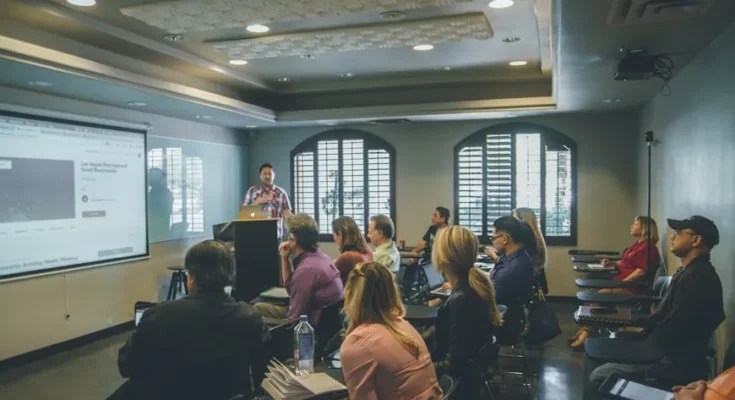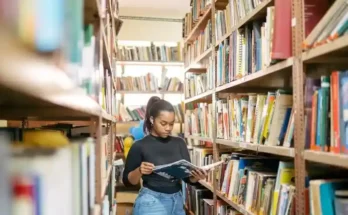The Evolution of Education in the Modern Era:
-
A Journey from Chalkboards to Cloud-Based Classrooms
Education has come a long way from the days of chalk and slates. What was once a system rooted in rote memorization has evolved into a dynamic journey of discovery. In today’s fast-paced world, education is no longer just a phase of life reserved for children and young adults. It is a lifelong adventure that continues to shape our identities, careers, and contributions to society.
Gone are the days when schooling was confined to dusty classrooms and outdated textbooks. Today, the educational landscape is global, digital, and deeply personal. Learning has become a blend of traditional academics, real-world experiences, and essential life skills.
-
The Role of Technology in Modern Learning
The digital revolution has transformed education in ways our ancestors could never have imagined. Online courses, virtual classrooms, AI-powered tutors, and immersive learning experiences have made quality education accessible to anyone with an internet connection. No longer do students have to rely solely on brick-and-mortar institutions to gain knowledge.
Technology has democratized learning. It empowers individuals in rural villages to learn coding, adults to pursue degrees while working full-time, and children to explore the universe from their living rooms. Education is no longer bound by geography or age. It has become a tool of empowerment available to all.
Beyond Books The Need for Skill-Based Learning:
-
Why Bookish Knowledge is No Longer Enough
While academic excellence remains important, the job market and society at large demand more than just good grades and textbook knowledge. We are living in a skills-driven economy where practical abilities often outweigh theoretical understanding.
Being able to solve real-world problems, communicate effectively, manage time, and adapt to change are critical skills that determine success in any field.
Education should not merely produce test-takers but thinkers, innovators, creators, and doers. Employers today value soft skills such as emotional intelligence, creativity, teamwork, and leadership just as much as they value technical expertise.
-
Bridging the Gap Between Education and Employment
One of the biggest challenges facing graduates today is the gap between what is taught in schools and what is needed in the workplace. Many students find themselves holding degrees but lacking the hands-on skills required for their chosen careers.
This disconnect has fueled a growing demand for vocational training, internships, apprenticeships, and certification programs that equip learners with industry-relevant skills.
Institutions and educators must evolve to address this gap. Curriculum design should involve collaboration with industry leaders and professionals who understand what skills the real world demands. Education should be an ongoing process of upskilling and reskilling.
Lifelong Learning:
-
Learning Has No Age Limit
One of the most beautiful truths about education is that it does not come with an expiry date. Whether you are five or eighty-five, the door to learning is always open. Many people believe that once they graduate from college, their education ends. But in reality, that is just the beginning.
Retirees learning new languages, parents enrolling in coding bootcamps, entrepreneurs taking design courses, and professionals pursuing online MBAs are all living proof that age is no barrier to lifelong learning. The thirst for knowledge is timeless.
-
The Role of Curiosity and Passion
What fuels lifelong learning is not just necessity but curiosity and passion. When we are truly interested in something, learning becomes a joy rather than a chore. This intrinsic motivation drives people to take courses, read books, attend workshops, and constantly seek improvement throughout their lives.
The beauty of learning in this era is the freedom to choose what you want to learn, how you want to learn, and when. Whether you are interested in photography, astronomy, entrepreneurship, or gardening, there are countless platforms and communities—like the lifelong learning discussions on Reddit—waiting to support your journey.
Education as a Tool for Empowerment:
-
Changing Lives and Breaking Barriers
Education is not just a means to a job. It is a powerful tool that can break the cycle of poverty, promote equality, and empower individuals to live better lives. It is the key to unlocking human potential and driving social change.
When people are educated, they are more likely to stand up for their rights, make informed decisions, and contribute positively to their communities. Girls who receive education are less likely to marry early and more likely to have healthier families. Marginalized communities can use education as a ladder to uplift themselves economically and socially.
-
A Global Responsibility
Ensuring access to quality education for all is a responsibility that rests not just with governments but also with communities, businesses, and individuals. We must all work together to build a world where education is not a privilege but a basic human right. This means investing in schools, training teachers, embracing inclusive policies, and supporting lifelong learning for all.
The Future of Education:
-
Shaping Tomorrow’s Learners
The future of education lies in personalization. One-size-fits-all methods no longer serve the diverse needs of modern learners. Adaptive learning systems, data-driven instruction, and AI tools now help tailor educational experiences based on individual strengths, weaknesses, and interests.
Purpose-driven education will be the new norm. Rather than simply aiming for degrees, learners will seek meaningful goals such as solving environmental issues, developing ethical technology, or building community resilience. Education will become not just about what we know, but what we do with what we know.
-
The Human Element
Even in a high-tech world, the human connection remains at the heart of education. Great teachers, mentors, and peers play an irreplaceable role in inspiring and guiding learners. While machines may deliver content, it is humans who deliver encouragement, empathy, and the belief that learning can change lives.
Conclusion:
Education today is a limitless horizon. It is no longer confined by age, geography, or convention. It is both a structured journey and a spontaneous exploration. In this new era, we are not only students of books but students of life.
We must embrace a broader definition of education that includes skills, creativity, critical thinking, emotional intelligence, and above all, the courage to keep learning no matter where we are in life. Whether you are starting school or starting over, remember that every day brings a new opportunity to learn something new. The world is your classroom and the future belongs to the learners.




